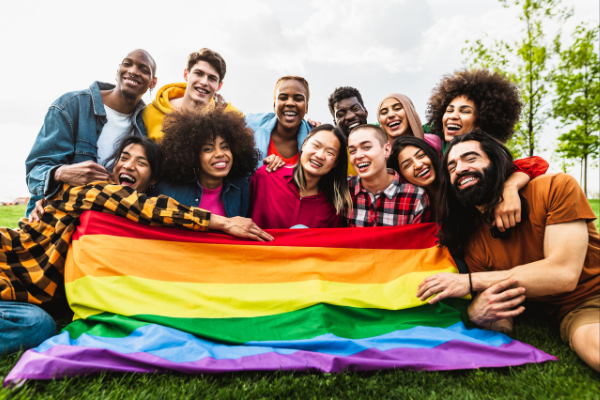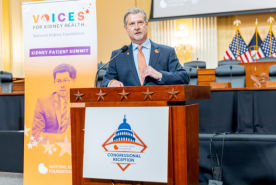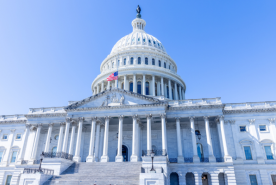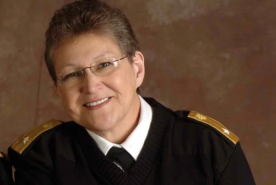June 09, 2022
Learn about the health disparities LGBTQ+ communities face and how to provide more inclusive care.
"Unless people with privilege are standing up and pushing back against those using their privilege for bad for bad purposes, these disparities are going to continue." –Brian Sims, PA Representative
Discrimination and harassment can get in the way of members of the LGBTQ+ community receiving medical care, which increases the risk of health problems. Dr. Dinushika Mohottige and Dr. Mitchell R. Lunn, two experts in sexual and gender minority health and the first openly gay elected state legislator in Pennsylvania history, Rep. Brian Sims, discuss this and more.
What Are The LGBTQ+ Communities?
Since the term "LGBT" first appeared in the late 1980s, the community has grown.
"While often in these conversations we talk about people that are lesbian, gay, bisexual, transgender, queer questioning, and intersex, our community is so much larger than that. People can finally discover their identity for themselves and identify who they are for themselves," said Sims. "We are gender nonconforming, gender non-binary, and two-spirit. We're so much more than just LGBTQ."
Find out more about this diverse community, get resources, or learn about allyship.
Subscribe today!
Join the NKF Blog Newsletter
Get inspirational stories and kidney disease resources delivered to your inbox every month. You'll gain practical insights and expert advice to help you better understand and manage your kidney health, no matter where you are on your kidney journey.
Disparities in Care
"As somebody who has worked in LGBTQ equality for a good portion of my life, [what has] always been abundantly clear to me is the disproportionate disparities in care across the LGBTQ spectrum," said Sims. "One of the big problems in LGBTQ advocacy is that far too many people believe that we are protected under the law, when we are simply not protected."
Sims is not alone, and there are stats to back it up. Healthypeople.gov, a federally run organization that monitors progress and creates benchmarks, reports:
- Many LGBTQ+ people face legal discrimination when accessing health insurance, employment, housing, marriage, adoption, and retirement benefits.
- There are few social programs for LGBTQ+ youth, adults, and elders.
- Few providers are culturally competent in LGBTQ+ healthcare.
Since the communities include people from all walks of life: every race, ethnicity, age, religion, socioeconomic status, and education level, some may experience more or less discrimination depending on their lived experience.
Dr. Lunn explains further, "Within our broad LGBTQ communities, we have racial and ethnic minority groups. We have people experiencing ableism. We have people experiencing multiple types of oppression. Our job, when we are advocating for LGBTQ people broadly, is to understand how those intersecting forms of oppression influence the experiences that individuals may have."
Avoided Or Turned Away From Medical Care
In addition to facing unequal care, LGBTQ+ people can have trouble even getting through a healthcare provider's door. Unfortunately, it occurs more often than you may think.
The Center for American Progress (CAP), a nonpartisan policy institute, discovered that:
- Eight percent of LGBTQ+ people and 29 percent of transgender adults reported that a healthcare provider refused to see them because of their actual or perceived sexual orientation.
- Six percent of LGBTQ+ people and 12 percent of transgender adults said that a healthcare provider refused to give them healthcare related to their actual or perceived sexual orientation.
- Nine percent of LGBTQ+ people and 21 percent of transgender adults said that a healthcare provider used harsh or abusive language with them.
"These are not just remnants of the past," said Dr. Dinushika Mohottige. I can think of an example of a person trying to get dialysis treatment in their unit. [They were] told to go to the hospital because they are a trans person and the climate was truly hostile and transphobic."
Even if they aren't outright turned away, poor treatment encourages people to stay away from medical care unless necessary. A year before the CAP survey, eight percent of all LGBTQ+ and 22 percent of transgender individuals avoided medical care for this very reason.
Kidney disease is a "silent disease" because few people have symptoms until their kidneys fail. The best way to prevent or slow the progression of kidney disease is through frequent healthcare checkups and managing risk factors like diabetes and high blood pressure. Sadly, discrimination often gets in the way.
Are you at risk of developing kidney disease? Take this one-minute quiz to find out.
Less Healthcare Education and Research
Even those with an unbiased provider often find themselves educating their provider. Why?
A 2011 survey found that healthcare education only provided 5 hours of training in LGBTQ+ subjects. Ten years later, a similar study saw this number increase by only 3 hours.
Dr. Lunn's experience aligned with this data. "As a medical student with a huge amount of privilege attending medical school at Stanford, my colleagues and I were really impressed on the fact that we were taught nothing about caring for LGBTQ people."
Since there is a lack of medical education, not all providers may be aware of treatment options or complications.
For example:
- Pre-exposure prophylaxis or prep for HIV may be toxic to some people's kidneys.1
- There has been little research on the effects of gender-affirming hormones on the kidneys.2
- There isn't a standard way to estimate kidney function in those assigned one sex at birth who are now taking gender-affirming hormones.3
Sims, who went through a kidney transplant at a facility in one of the top ten cities in America, experienced a practitioner's lack of medical education firsthand. "I still had to explain to people what [HIV] PrEP was. There are many things like that really do require LGBTQ people to really have to be very forward with who we are and our care."
The Impact of Discrimination
For many, the discrimination doesn't end at their doctor's office; It can occur at home, at work, at school, and in public spaces like parks and grocery stores. From glares to staring to outright physical violence, living in a world that doesn't accept you is incredibly difficult and has a real impact.
According to Healthypeople.gov:
- LGBTQ+ youth are 2 to 3 times more likely to try suicide.
- Transgender individuals have a high prevalence of HIV/sexually transmitted diseases (STDs), victimization, mental health issues, and suicide.
- Elderly LGBT individuals face isolation, not enough social services, and few culturally competent providers.
If you, a friend, or a loved one is struggling with their mental health, it's important to remember that you are not alone and that help is available.
Here is a list of LGBTQ+-friendly helplines staffed by trained professionals.
How To Provide Inclusive Care
So, where do we go from here? It's simpler than you may think. Everyone wants to be valued and appreciated for who they are. So, in a healthcare setting or not, creating policies that provide safety and affirm peoples' identities is a great place to start.
You can:
- Use people's correct/chosen name
- Use people's right/preferred pronouns
- Supply bathrooms suitable for all people or have gender-neutral bathrooms
- Not assume one's gender, identity, or sexual orientation
- Ensure privacy and respect
- Include items that visually support the community, like pronoun pins.
It's also important to remember that no one is perfect, and you'll likely make mistakes. If you do, apologize, learn from it, and move on.










